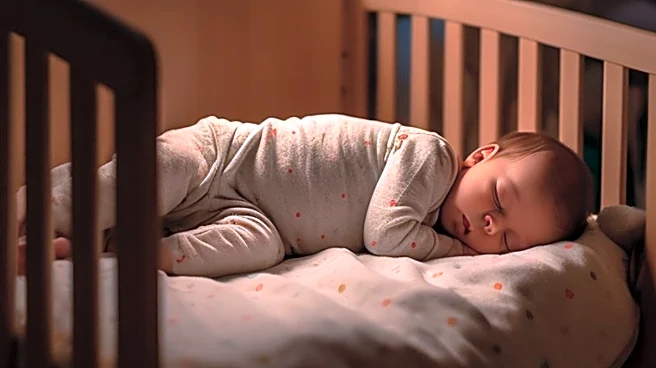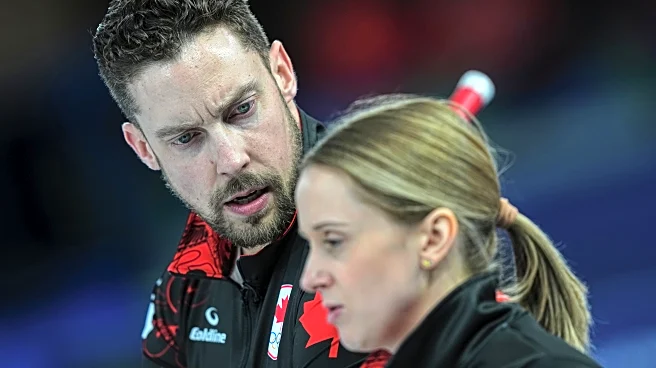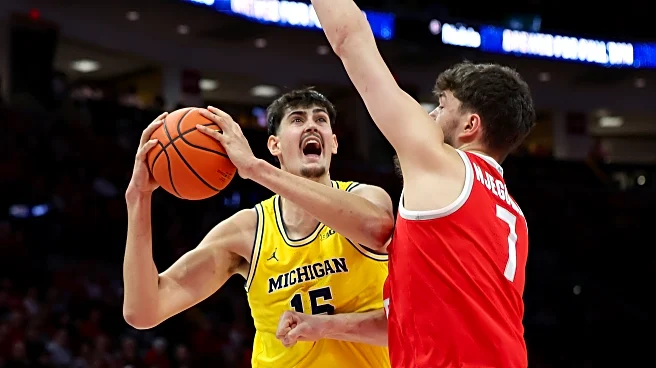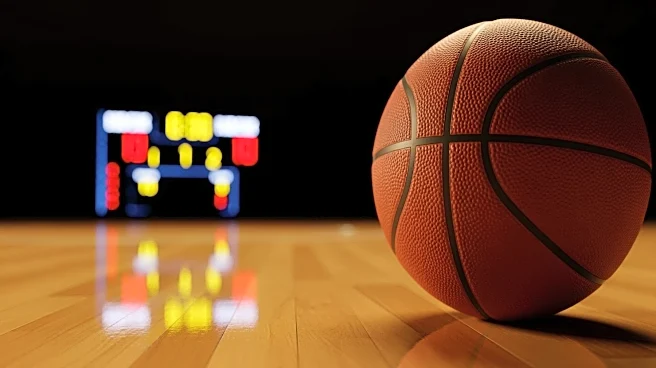What's Happening?
Consumer Reports has issued a critical reminder for parents and caregivers regarding safe sleep practices for infants. The report emphasizes that certain products marketed for infant sleep can pose significant risks, including suffocation and sleep-related
death. Key recommendations include keeping cribs free of bumpers, stuffed toys, pillows, blankets, and weighted products, which can increase the risk of suffocation. Swaddling is advised for newborns, provided it is non-weighted, and should be discontinued when the baby begins to roll over, typically between 2 to 4 months. For older infants, non-weighted wearable blankets or sleep sacks are recommended to keep them warm without danger. The American Academy of Pediatrics advises against bed-sharing, even for naps, suggesting that keeping the baby’s crib or bassinet in the parents' room can reduce the risk of sudden infant death syndrome by up to fifty percent. Additionally, nursing pillows should never be used for sleep, as they have been linked to over 150 infant deaths between 2010 and 2022.
Why It's Important?
The guidance from Consumer Reports is crucial for ensuring infant safety during sleep, a time when they are most vulnerable. By following these recommendations, parents can significantly reduce the risk of sudden infant death syndrome and other sleep-related injuries. The emphasis on avoiding certain products and practices highlights the importance of informed decision-making in purchasing and using infant sleep products. This information is vital for new parents and caregivers who may be unaware of the potential dangers associated with common sleep setups. The report also underscores the need for continued vigilance and adherence to safety standards to protect infants from preventable harm.
What's Next?
Parents and caregivers are encouraged to review their current sleep setups for infants and make necessary adjustments to align with the safety recommendations. Consumer Reports will continue to evaluate infant sleep products for safety, convenience, and ease of assembly, providing ongoing guidance to the public. The American Academy of Pediatrics and other health organizations may further disseminate these findings to raise awareness and promote safe sleep practices. Manufacturers of infant sleep products may also respond by ensuring their products meet safety standards and addressing any identified risks.
Beyond the Headlines
The report highlights broader implications for consumer safety and product regulation. The ban on inclined sleepers in 2022, following links to infant deaths, reflects a growing awareness and regulatory action to protect vulnerable populations. This development may lead to increased scrutiny and regulation of other infant products, ensuring they meet stringent safety criteria. The focus on safe sleep practices also contributes to a cultural shift towards prioritizing infant health and safety in everyday parenting decisions.

















